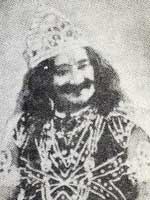Tribute to the great legendary Dr.MS Reddy
(Mallemala Sundara Rami Reddy the legendary producer, director, screen writer and lyricist , pride of Telugu cinema )
****
http://movies.ndtv.com
Sundara Rami Reddy was born on August 15, 1924 near Nellore. He was also known as 'Sahaja Kavi' for his lyrical simplicity in penning poems. He penned more than 5,000 lyrics and played a vital role in the shifting of the Telugu film industry from Chennai to Hyderabad.
One of the most respected personalities of the industry, Reddy, during a career that spanned about 60 years, produced hit films like Ankusam, Talambralu, Ahuti, Baala Ramayanam, Ankusam, Ammoru, Agraham and the more recent Arundhati.
He worked with some of the industry's most popular heroes, including NTR Jr who made his debut in Baala Ramayanam, which Reddy made with 3,000 child artistes. The film bagged the Best Children's Film Award.
He portrayed the role of chief minister in one of his films, Ankusam. Reddy also served as president of the Telugu Film Producers Council, South Indian Film Writers Association, Film Nagar Cooperative Housing Society and chairman of AP Film Development Corporation.
His son, Shyam Prasad Reddy, is also a film producer.
Chief Minister N Kiran Kumar Reddy visited MS Reddy's residence in the evening and offered floral tributes to the body. He conveyed sympathies to the bereaved family members. In a message, Kiran Kumar Reddy praised MS Reddy for his contribution to the film industry.
PCC president Botcha Satyanarayana, TDP president N Chandrababu Naidu, actor Chiranjeevi, BJP leaders M Venkaiah Naidu and G Kishan Reddy also mourned the death of MS Reddy.
Dadasaheb Phalke awardee and thespian Akkineni Nageswara Rao and noted film producer and Dadasaheb Phalke awardee D Rama Naidu were among several Tollywood personalities who visited Reddy's house and paid homage. (Additional inputs from PTI)
Read more at: http://movies.ndtv.com/movie_story.aspx?section=Movies&Id=ENTEN20110189953&keyword=regional&subcatg=MOVIESINDIA&nid=157225&cp






